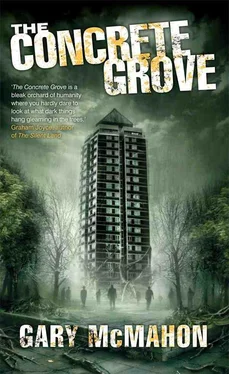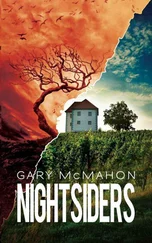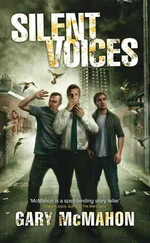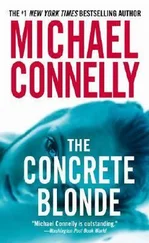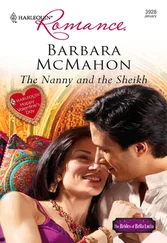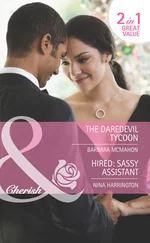“Now we can talk, like a couple of good old fellows. Yes?” His lips didn’t move much when he spoke: his teeth remained clenched, like those of a ventriloquist throwing his voice.
Banjo nodded his head, kept nodding it. The drugs they’d been feeding him had taken control of his actions. He couldn’t stop even if he tried.
“Stop that. You might hurt yourself.” Monty Bright smiled, and it was like every last bit of light in the room rushed towards his mouth, smearing against his small, white teeth.
Banjo stopped nodding. It was strange how this man’s energy seemed to cut through even the tremors of the drugs to make Banjo do as he wished.
“You took something from me, son. You robbed me, and that isn’t nice. I now find myself in a position — one I’ve been in many times before — where I’m forced to make an example of you.” His voice remained low. There was nothing particularly aggressive about his tone, but Banjo sensed his violence, even saw it moving snakelike behind the mask he wore. Bright didn’t waste words; everything he said had a purpose, and that purpose was usually dark.
Banjo felt tears rolling down his cheeks.
“Poor boy,” said Bright, taking a couple of small steps forward so that he was directly in front of his captive. “Wasting tears on this life… your life. It wasn’t much, you know. Your life. Not really. You were ejected, bloody and screaming, from your mother’s gaping cunt, and then you were raised like an animal, a sacrifice for whatever dark gods rule places like this.” He smiled again: quick, tight, like a wound opening up on his face for one brief moment. The lamplight quivered. “You fucked a few girls, smoked a few drugs, and made a few casual friends. You wasted your time at a shitty state school, learning nothing and dropping out before you’d even dropped in. Then you were ejected again, from a different cunt this time, to stand bloody and screaming before the jaws of society.”
Banjo could do nothing for crying. The ball gag was making him choke; his throat ached. He was sobbing now: deep, heartfelt, half-choked muffled sobs that shook his entire body. He felt no grief; something else, an entirely unnameable emotion, stirred within his depths.
“It’s such a fucking waste — a waste of everything , son. Do you see that?” Monty Bright bent forward. He smelled of an enclosed room after heavy rain, a dark corner where water seeps in to cause rot. “But let’s not waste these tears.” His tongue, long and rough and pointed, slid between his thin lips and he licked Banjo’s cheek, lapping up his tears like honey. This perverse and intimate act lasted only a couple of seconds, but it made such a great impact on Banjo that he felt his heart break. Here was a man — a strong, powerful man — who thought so much of Banjo’s regrets that he would feed on his tears. It should be horrendous, a concept so inhuman that it was monstrous, yet Banjo felt nothing but love.
He loved Monty Bright like a father.
Banjo smiled around the ball gag, tasting plastic. The drugs raced through him, changing him, making him malleable to the consciousness of this other.
Bright nodded, reached up, and removed the gag. “Are you ready to redeem yourself, to make sure that the rest of your life isn’t wasted?” Then, producing a small knife, he cut the plastic ties, freeing Banjo’s arms and legs.
“Yes,” said Banjo, still smiling, his voice raw in his dried-out throat. “Yes, I’m ready.” He rubbed his arms, trying to get the blood flowing. His legs felt like wooden stilts, stiff and unresponsive.
Bright took him by the hand — no man had ever done that before — and led him across the room, to the other door. Banjo’s legs grew stronger, the muscles remembering how to walk. Soon he was moving more easily, his body becoming more responsive and the drugs in his system flowing freely now that he was unbound.
Banjo felt like he was floating, tethered to the ground only by the grip of his captor’s hand.
The door he stood before was old, scarred, and weathered, as if it had been kept outside for decades rather than inside this room. The ancient paint was peeling like scabs; the heavy grain of the wood looked like burst veins and capillaries.
“Step inside and become something else, something more than human wastage.” Monty Bright stepped back, prodding Banjo gently in the small of the back. Bright didn’t touch the handle, but the door began to open. It moved smoothly, without a sound, and Banjo stared at the ribbon of darkness that grew between door and frame, becoming a black wedge.
“Go on, now. Let’s get this done, son. Let’s get this show on the road. The fucking road to nowhere.” Bright’s voice, along with his accompanying laughter, sounded as if it was reaching him from a great distance.
Banjo stepped into the welcoming darkness and felt the last vestiges of his old fear leave him as the door closed behind him. He thought of his mother, and the way she had wasted her life on drink, her own drug of choice; he remembered his father, turning away and leaving them all behind; he recalled fondly the touch of his baby sister’s hand, the night she had died of pneumonia in hospital. None of these memories upset him — they were like pictures on television, scenes from the videos he used to love. He was free of them now; this room he had walked into, and the drugs, had cut him off from harm.
Banjo walked to the centre of the room, his eyesight now growing accustomed to the darkness. The ground was soft, like mud, and the walls seemed to writhe at the corner of his vision. Soon he realised that he was surrounded.
He stood at the centre of a number of televisions. Each of them was an old model — some of them must have dated back to the early days of the technology. Big dusty screens stared blindly in his direction; dead cables trailed behind bulky sets; large buttons and dials were like mutations on the shells of these machines.
At one level he was aware that there must be something here, for him to see, but at another level, where he stood apart from the scene, he knew that he was so wasted that he could be looking at a bunch of cardboard boxes and moulding the image to suit his mood.
Banjo kneeled on the soft ground. He was not sure why, it just felt right, like an act of communion. His entire life had been spent in thrall to these things as they pumped out images and lifestyle choices, so why not worship them now, in a dark underground room that felt so much like a church?
He bowed his head just as the screens came to life.
One after another, in quick succession around him, forming a crude circle of brightness, the screens flared, bathing him in their holy light. Dust swam before his eyes, giving the illusion that he was underwater. The television sets throbbed, a cathode-ray heartbeat, and he watched as pictures began to form from the static. It was like birth: difficult, painful. The forms bucked and writhed, twitched and jerked, and the screens bulged outwards as the figures took shape.
Drug-demons: nightmares snatched from inside his head. He watched them with a sense of wonder.
They were small and they were naked. Their skin was the colour of static; their eyes the grey of the dusty concrete that had surrounded him his entire life. They emerged like grubs from the television sets, their substance formed of the material of the screens as well as the nebulous static and the ghost of the heroin in Banjo’s blood. They left behind their empty TV shells as they rolled away, their legs lengthening in sudden thrusts. The fronts of the television sets looked like a series of kicked-in faces. The things that had hatched from these wounds lay curled on the ground before them, twitching occasionally; sleeping dogs dreaming of the chase.
Читать дальше
